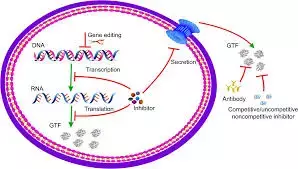- Home
- Medical news & Guidelines
- Anesthesiology
- Cardiology and CTVS
- Critical Care
- Dentistry
- Dermatology
- Diabetes and Endocrinology
- ENT
- Gastroenterology
- Medicine
- Nephrology
- Neurology
- Obstretics-Gynaecology
- Oncology
- Ophthalmology
- Orthopaedics
- Pediatrics-Neonatology
- Psychiatry
- Pulmonology
- Radiology
- Surgery
- Urology
- Laboratory Medicine
- Diet
- Nursing
- Paramedical
- Physiotherapy
- Health news
- Fact Check
- Bone Health Fact Check
- Brain Health Fact Check
- Cancer Related Fact Check
- Child Care Fact Check
- Dental and oral health fact check
- Diabetes and metabolic health fact check
- Diet and Nutrition Fact Check
- Eye and ENT Care Fact Check
- Fitness fact check
- Gut health fact check
- Heart health fact check
- Kidney health fact check
- Medical education fact check
- Men's health fact check
- Respiratory fact check
- Skin and hair care fact check
- Vaccine and Immunization fact check
- Women's health fact check
- AYUSH
- State News
- Andaman and Nicobar Islands
- Andhra Pradesh
- Arunachal Pradesh
- Assam
- Bihar
- Chandigarh
- Chattisgarh
- Dadra and Nagar Haveli
- Daman and Diu
- Delhi
- Goa
- Gujarat
- Haryana
- Himachal Pradesh
- Jammu & Kashmir
- Jharkhand
- Karnataka
- Kerala
- Ladakh
- Lakshadweep
- Madhya Pradesh
- Maharashtra
- Manipur
- Meghalaya
- Mizoram
- Nagaland
- Odisha
- Puducherry
- Punjab
- Rajasthan
- Sikkim
- Tamil Nadu
- Telangana
- Tripura
- Uttar Pradesh
- Uttrakhand
- West Bengal
- Medical Education
- Industry
Multiple-enzymes lozenge may be an adjunct to regular mechanical plaque removal, suggests study

Multiple-enzymes lozenge may be an adjunct to regular mechanical plaque removal, as suggested by a study published in the Journal of Dentistry.
A study was done to evaluate the effect of daily use of a multiple-enzyme lozenge on de novo plaque formation, on gingivitis development, and on the oral microbiome composition. This trial with two parallel arms included 24 healthy adults allocated to the Active (n = 12) or Placebo (n = 12) group. Subjects consumed one lozenge three times daily for seven days, and no oral hygiene procedures were allowed. Differences in de novo plaque accumulation between a baseline period, and one and seven days of intervention were assessed by the Turesky-modification of the Quigley-and-Hein-Plaque-Index (TM-QHPI). The development of gingivitis after seven days of intervention was assessed by the Gingival Index (GI). Plaque and saliva samples were collected at baseline and after seven days of intervention, and evaluated by 16S rRNA gene sequencing.
Results: All subjects completed the study, and no adverse events were reported. After one day, the average TM-QHPI was significantly lower in the Active than in the Placebo group, as compared to baseline (p = 0.012). After 7 days, average TM-QHPI values did not differ significantly between groups (p = 0.37). GI values did not increase during the intervention period, with no difference between groups (p = 0.62). Bacterial richness increased in both plaque and saliva samples over a seven-day oral hygiene-free period, with a statistically significant difference for the saliva samples (p = 0.0495) between groups. A multiple-enzymes lozenge decreased the build-up of de novo plaque after one day and slowed down the process of species increment in saliva. The lozenge may be an adjunct to regular mechanical plaque removal. Dental plaque is the main cause of caries, gingivitis, and periodontitis. The search for therapeutic adjuncts to mechanical plaque removal that have no harmful effects on the oral microbiome is important. Treatment with multiple plaque-matrix degrading enzymes is a promising non-biocidal approach to plaque control.
Reference:
Sebastian Schlafer, Karina K. Johnsen, Inge Kjærbølling, Andreas Schramm, Rikke L. Meyer, Mette Rose Jørgensen. The efficacy and safety of an enzyme-containing lozenge for dental biofilm control—a randomized controlled pilot trial. Journal of Dentistry, Volume 147,
2024, 105107, ISSN 0300-5712. https://doi.org/10.1016/j.jdent.2024.105107.
Dr. Shravani Dali has completed her BDS from Pravara institute of medical sciences, loni. Following which she extensively worked in the healthcare sector for 2+ years. She has been actively involved in writing blogs in field of health and wellness. Currently she is pursuing her Masters of public health-health administration from Tata institute of social sciences. She can be contacted at editorial@medicaldialogues.in.
Dr Kamal Kant Kohli-MBBS, DTCD- a chest specialist with more than 30 years of practice and a flair for writing clinical articles, Dr Kamal Kant Kohli joined Medical Dialogues as a Chief Editor of Medical News. Besides writing articles, as an editor, he proofreads and verifies all the medical content published on Medical Dialogues including those coming from journals, studies,medical conferences,guidelines etc. Email: drkohli@medicaldialogues.in. Contact no. 011-43720751


